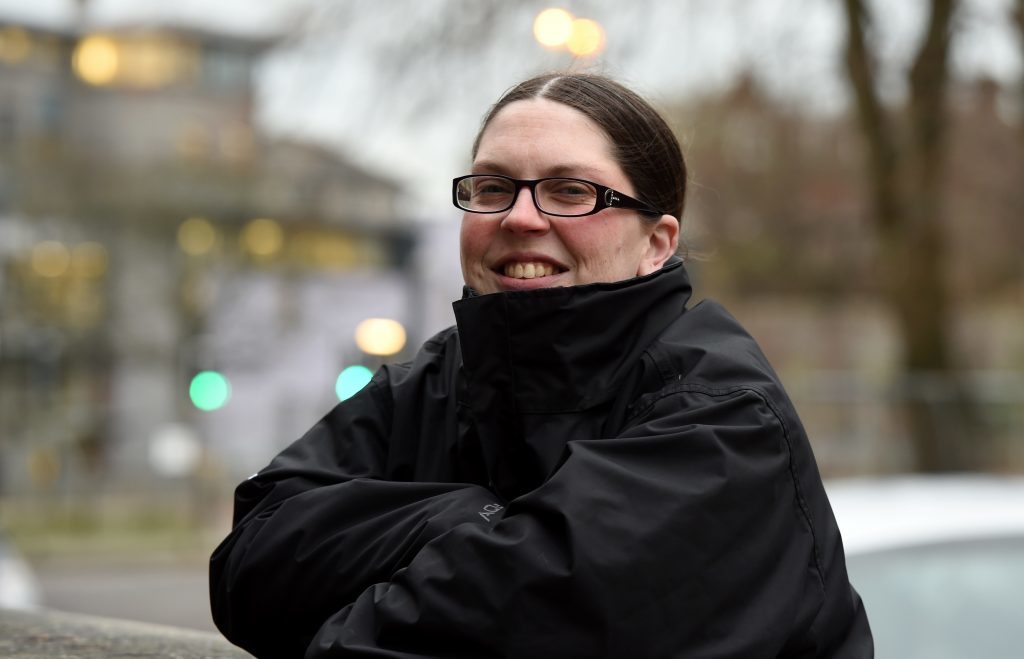
Leaving the oil and gas industry had never been a consideration for Charis Gray until the most recent global downturn.
The 31-year-old loved her health and safety role within the sector having made her way up through the career ladder in the past decade.
But she faced losing her job twice in the space of six months as companies continued to shave off positions in a bid to save costs.
The former oil and gas worker will start the new year instead in a completely different industry altogether as a postie.
Her new role comes after more than a year of regular job applications to regain employment.
Ms Gray said: “I’m temping with Aberdeen City Council through an agency which I’ve been doing since September. I taxi drive at the weekends around Stonehaven. The firm said they could get me work but I would have to get my licence first. I’ve also been doing that since September.
“I worked in oil and gas about 10 years. I started in an entry level admin position. I was at different companies for a year, two years before moving on. I was at Deep Casing Tools for six months then I had an eight-week contract in Dundee on the Ensco 100 rig and then I went from that into a new permanent position with Paradigm Drilling.”
Ms Gray was made redundant from her first role in March last year and then again from her second role in November.
She said both experiences left her feeling “horrible and lost and stressed”.
After a town hall meeting to discuss redundancies, letters were sent out to employees with a four-week consultation period taking place.
Ms Gray said the Christmas after finding out she had lost her job again was “torture” and she struggled to find fresh work until April this year.
She signed on for Job Seekers Allowance and continued to send “at least” 10 applications each day in pursuit of a new role.
Finding a new job was difficult, with the additional stigma of coming from oil and gas.
“I have a lot of friends who have lost jobs as well or are still in limbo. I’ve actually had someone say to my face in an interview they weren’t sure because I was in oil and gas,” she added.
In the New Year, Ms Gray will work as a postie out of Royal Mail’s offices in Altens.
She said the change in her career path has helped to give her a different outlook on life.
Ms Gray added: “I guess it has taught me to smell the roses a little bit and appreciate what you have. I’ve learnt there’s more important things in life than what you do for a living, sadly I still need to pay my bills. I’ve got direct debits which will come off before the end of the week and I don’t know how I’m going to pay them. I managed my first year after redundancy and then after that the money ran out.
“I didn’t get packages from either redundancies. I survived from prioritising what money I had left and what I had to pay and not what to pay.
“I’m a planner, living day-to-day isn’t my thing. I don’t like to wing my way through life.”
She said when she found out about her new role as a postie she didn’t want to celebrate “too hard” as she had been close with other roles beforehand.
During her time searching for new jobs, Ms Gray spent most mornings applying for jobs before taking a break and returning again to applications in the afternoon.
The champion horse winner said being able to ride or go out with family members for a break had helped her get through the past couple of years.
She said more could be done to support workers move out of oil and gas and into another sector.
If it hadn’t been for the kindness of others, the redundancy process could have been even more daunting.
“Friends and family have done wonderful things for me. Their support has been fantastic,” she added.
This series is in association with Elevator – Scotland’s social enterprise dedicated to supporting entrepreneurship, enterprise and employability – works across Grampian and Tayside to help facilitate the start-up and growth of new and existing businesses.
Delivering Business Gateway, Elevator currently engages with 2,500 start-up businesses and assists around 1,000 organisations to grow annually with advice and support. It aims to help an additional 200 start-ups a year through initiatives such as its hugely successful Accelerator Programme, which aims to fast-track businesses to the next level. Find out more here.
Recommended for you
